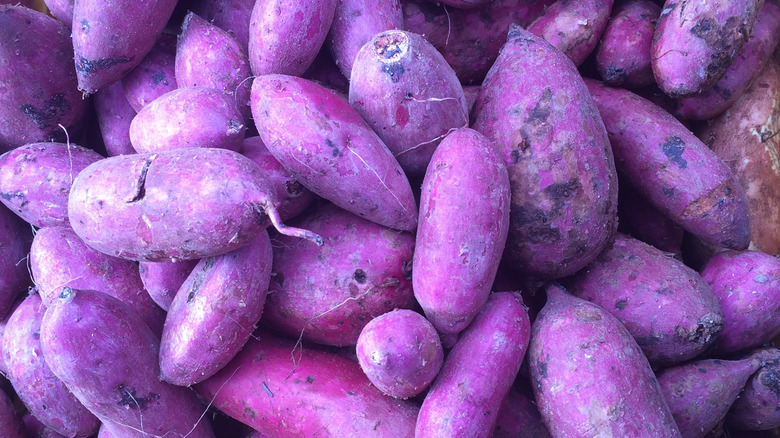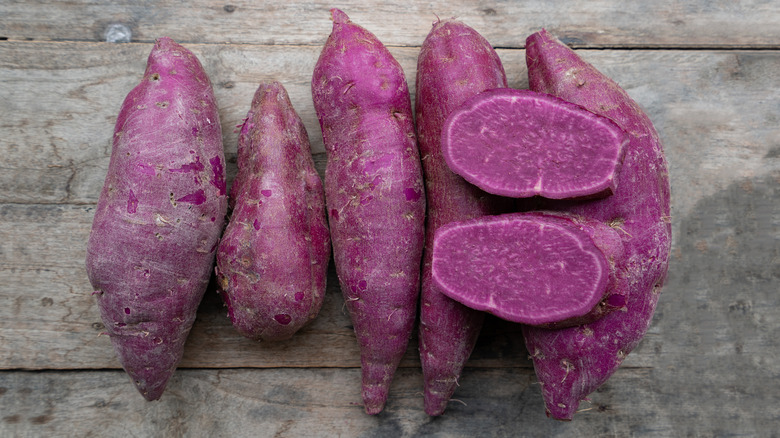Ube Is More Than A Purple Sweet Potato. Here's How They Differ
Although they're both purple and have a comparable sweet taste, there are distinct differences between the Okinawan purple sweet potato and the ube tuber. Okinawan purple sweet potatoes, very much like their orange counterparts, are actually flowering plants in the morning glory family. These spuds have a thin off-white colored skin that can be consumed, and have a semi-sweet flavor with a mealy texture.
One of the big differences between the ube, a tuber from Southeast Asia, and the purple potato is rather simplistic. The former isn't a potato but a yam, and one with a particular sweet flavor that's perfect for your next dessert. Thanks to an appearance like a bark with thick wiry roots, no one would easily confuse the ube with another type of potato. Furthermore, the skin of an ube must be peeled before eating.
Another relevant distinction between ube and purple sweet potatoes is in their glycemic indexes. An ube ranks at 79 while the Okinawan purple potato is at 54. This makes the purple tuber better for those who want to manage their blood sugar, such as those living with diabetes or cardiovascular disease.
How to use ube and purple sweet potatoes
Purple sweet potatoes can be cooked and utilized in much the same way that orange sweet potatoes can. They can be mashed, baked, roasted, sautéed, or even fried. The purple potato can easily be incorporated into a pie or into potato salad, joining the ranks of unique potato salad ingredient additions. Basically, recipes that utilize orange sweet potatoes can be readily used with purple ones. Since the color doesn't necessarily fade during cooking (though they can oxidize), you can add a dash of purple to the table with purple gnocchi or even sweet potato casserole.
Ube, on the other hand, more readily lends its sweet, nutty flavor to desserts, baked goods, and even savory dishes. The native tuber from the Philippines has become a sought-after flavor across the world in recent years. There are cocktails, hamburger buns, and a medley of desserts featuring ube. For those who don't want to prepare the tuber themselves, numerous companies also produce ube flavored creamer, jam, flavoring, and even pancake mix, among many other products.

